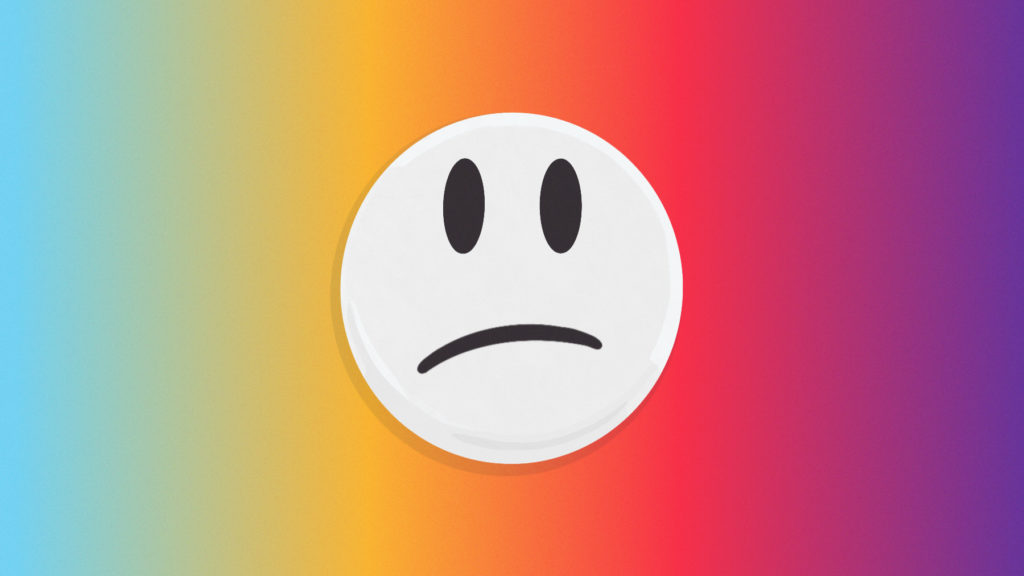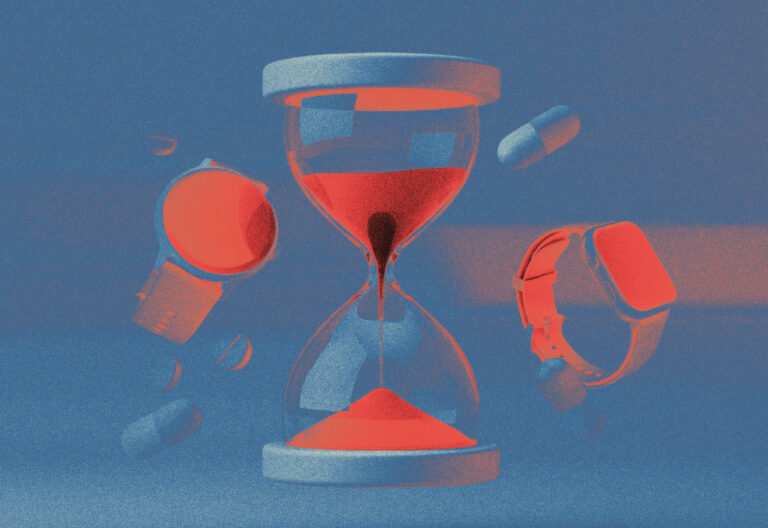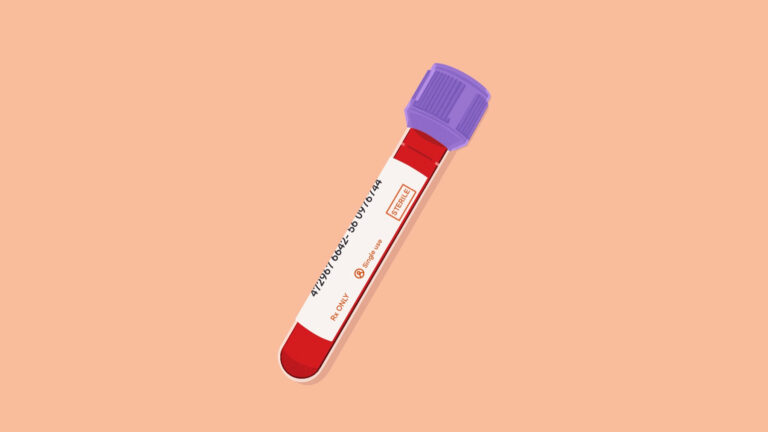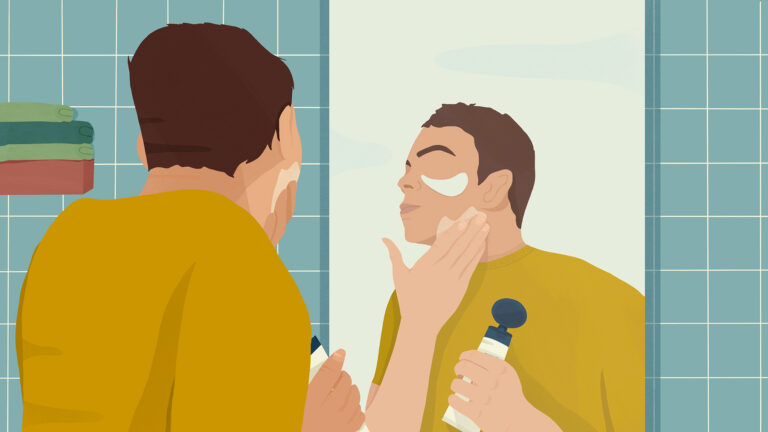From self-care to mental health and doctor visits, Gen Z is reimagining well-being.
Ready or Not
Coming of age, every new generation baffles the former, giving rise to stereotypes about kids these days.
Gen Z is no different, and their impact on culture is already being felt.
- Born after 1996, the oldest Gen Zers are now 25.
- They account for about a quarter of the US population.
- By 2030, Gen Z will be 30% of the workforce, with earnings reaching $2T.
When it comes to health and well-being, Gen Z’s influence is especially evident — where personal preferences are a response to a broken healthcare system, lingering pandemic, chronic burnout, and more.
Exploring this generation’s outlook, as well as shortcomings and opportunities across the industry, we’re breaking down Gen Z’s evolving approach to wellness.
Top of Mind
Confronting societal, political, and economic uncertainty, nearly three in four young Americans say the US is in the midst of a mental health crisis.
- Only 45% of Gen Z feel they have “very good” mental health.
- 53% have a behavioral health condition; 75% report anxiety/depression.
- 18% say severe mental health issues led them to consider self-harm/suicide.
But, shedding long-held stigmas, amplifying the mental health conversation is also part of Gen Z’s identity.
- More than other generations, 37% have received treatment or therapy.
- 70% say mental health is a top priority, above other aspects of well-being.
Nonnegotiable. Access to mental health care is vital at universities and in the workplace.
Only a quarter of college students know how to access treatment on campus. Among those in need, many are waitlisted, and others are never seen. Worse, at many schools, demand outpaces the supply of qualified professionals.
A critical issue for employers, burnout has led to mass resignations and worker shortages. Craving support, 66% of Gen Z want a company culture built on mental health and wellness. Now an expectation, younger employees rank mental health benefits second only to a 401K.
“Me” time. Taking matters into their own hands, Gen Zers say self-care is their top method for maintaining mental well-being.
A broad category, exercise, hobbies, and time off fall under the self-care umbrella, while mindfulness practices like breathwork and yoga complement therapy as potential care options.
A step further, as health intersects with every aspect of day-to-day life, holistic wellness—including physical, mental, emotional, and spiritual well-being—trumps one-dimensional care.
What’s trending: Fresh takes on mental wellness by Chill Pill and BeMe. Music-based apps including Spoke and SoundMind. Breathwrk, Open, and Othership to destress. And apps rethinking social media like BeReal and Yubo.
Hybrid Care
A self-guided and multichannel approach, Gen Z prefers personalized, convenient, and highly accessible care.
Tethered to their smartphones, it’s no surprise that TikTok, Google searches, and influencers inform this cohort’s healthcare decisions. They’re also more likely to use health wearables and more comfortable with at-home lab tests.
But, despite being digital natives, IRL doctor’s visits remain a priority for Gen Z.
- 62% favor in-person communication with healthcare providers.
- 58% want to establish a more personal, long-term provider relationship.
Still, according to Accenture, only 55% of Gen Z patients have a PCP. Taking issue with the existing system, citing poor effectiveness, efficiency, and transparency, this demo is dissatisfied with the entire healthcare experience.
What’s trending: Caraway brings women’s+ healthcare to college students. Juna is destigmatizing STI tests. Aavia champions hormone health. Betty’s Co. focuses on next-gen women’s+ care. Stix and Cheeky Bonsai offer judgment-free fertility and STI treatments.
Plus, with one in five Gen Z adults identifying as LGBTQ+, companies like Plume, Folx, and LVNDR are scaling up to offer trans- and queer-affirming health care.
Zooming out: Gen Z’s struggles highlight the extent to which healthcare fails to meet the evolving needs of diverse populations. It also reveals broader societal issues that make quality, affordable care difficult to access.
Punchline: Instead of attributing shifts in consumer behavior to generational stereotypes, these insights signal a desire for empathy, personalization, and inclusivity in the quest to improve well-being.
Hit us up! If you’re working on a Gen Z health/wellness startup, let us know — we invest in early-stage companies building a healthier, happier world.
🫡 Special Ops
The high-performance lifestyle has come to healthcare.
On the Fitt Insider Podcast: Andrew Herr, founder & CEO of Fount, discusses his health optimization platform developed with Navy SEALs.
We also cover: Fount’s contracts with The Pentagon, personalizing performance, and the company’s plan for AI coaches.
Listen to today’s episode here
💚 Whole Wellness
When Whole Foods CEO & co-founder John Mackey steps down next month, his next venture will be wellness.
What’s happening: Behind the scenes of his planned exit, Mackey has been getting Healthy America LLC, an “evidence-based lifestyle company,” off the ground.
After raising $31M earlier this year, the company will soon open its first wellness center (called Love Life!) offering plant-based eats, alternative medicine, and fitness under one roof.
Joined by ex-Whole Foods execs Betsy Foster and Walter Robb, the group is planning a chain of stores that “maximize overall health.”
For context: The visionary behind Whole Foods Market’s healthy ethos, Mackey is largely credited with bringing organic food into the mainstream. Once mocked as “hippies selling food to other hippies,” Amazon acquired the retailer for $13.7B in 2017.
Now, with plant-based cafes, spa and fitness services, and lifestyle medicine that blends Eastern and Western practices, Mackey wants Americans to take a more holistic approach to well-being.
All-in-one. As wellness becomes an essential part of everyday life, brands are moving in from all angles, hoping to offer a more integrated experience.
- Alo Yoga’s NYC Flatiron location includes a plant-based, rooftop restaurant.
- Social clubs like HEIMAT and Remedy Place build communities around holistic wellcare.
- Equinox Hotel embodies high performance with an onsite gym, spa, and healthy restaurant.
Of note, with Amazon buying One Medical, Mackey’s current employer is working on its own integrated offering as his next act takes shape.
Takeaway: The US healthcare system’s fragmented and reactive nature rachets up prices, even as health outcomes falter. With Healthy America, John Mackey is hoping to start another movement — one built on the common knowledge that eating healthier, moving more, and stressing less lead to a healthier life.
🏀 Buckets
Smart equipment, VR, and analytics are shaping basketball’s future.
Game on. From aspiring amateurs to elite athletes, the market is massive and growing quickly.
- There are 450M+ basketball players globally.
- Among pro franchises, three NBA squads rank among the top 10 highest valued teams.
The latest: Tapping innovative tech and gamification, Gym Class and huupe scored new funding.
Backed by YC and a16z, VR basketball app Gym Class added an $8M seed round. Boasting 1M downloads, 14K reviews, and a 4.9-star rating, the company is bringing real-world roundball into the metaverse.
huupe, meanwhile, closed a $3M seed investment. Using LiDAR sensors and AR, its connected basketball hoop tracks shots and gamifies performance, enabling competition with other huupe owners.
Social by design, CEO Paul Anton told us its most important feature is community-building:
“Basketball transcends race, creed, color, religion, and politics. Now, with huupe, basketball will even transcend physical distance.”
Slam dunk. Technology is transforming every aspect of sports performance, including the game of basketball. From AI to wearables to AR/VR, athletes, scouts, and leagues are taking notice.
- Crosscourt enhances the pick-up experience with its member-based basketball club.
- HomeCourt, Uplift, and Handle Fitness use 3D motion tracking to analyze your game.
- ShotTracker and SIQ Basketball sneak sensors into jerseys, arenas, and even the ball itself for real-time game management.
Elsewhere, the NBA debuted its own incubator program called Launchpad, investing in startups (like Uplift) that elevate the performance and the state of play.
And, as analytics take center stage, Launchpad-backed connected apparel maker Nextiles and load monitoring platform Orreco use biometrics to unlock performance.
Takeaway: To prevent injuries, sharpen skills, or simply to make a shootaround more fun, as more capital flows to the space, emerging technologies will usher in a new era of sports.
📰 News & Notes
- WeightWatchers syncs Abbott CGMs.
- Nike Training Club adds adaptive workouts.
- Fitt Jobs: Who’s hiring in the health & fitness industry.
- ROAM Fitness plots 70 airport gyms as layover workouts surge.
- Orangetheory enters corporate wellness with Gympass network.
- DeepMind’s AI unlocks “treasure trove” of human biological data.
- Google plans to integrate wearables and TVs for interactive workouts.
- Startup Q&A: movr CEO Aaron de Jong on movement-health-as-a-service.
💰 Money Moves
- Everytable, an omnichannel healthy food company, landed $55M in a Series C round co-led by Creadev, Desert Bloom Food Ventures, and Gullspång Re:food.
- Rural healthcare company Homeward secured $50M in a Series B round co-led by ARCH Venture Partners and Human Capital.
- Forage, a fintech platform making food stamps available for online grocery shopping, raised $22M.
- Sportsbox AI, an AI-powered athletic performance startup, closed $5.5M in a seed round led by EP Golf Ventures, with participation from Michelle Wie West and others.
- huupe, makers of a connected basketball hoop, closed $3M in a seed round.
More from Fitt Insider: Our conversation with huupe CEO Paul Anton - London-based digital personal training platform Another Round secured a “six-figure” investment from Pure Gym founder Peter Roberts.
- She Matters, a postpartum care platform for Black women, secured $1.5M in pre-seed funding.
- Link My Ride, a platform helping cyclists organize group rides, received an undisclosed investment from Dutch Sports Tech Fund.
- UK-based healthier doughnut maker Urban Legend secured $7M in a Series A.
- Boisson, a nonalcoholic beverage retailer, closed $12M in a seed round co-led by Connect Ventures and Blue Scorpion Investments.
- Functional beverage maker WET Hydration closed $1.3M in a seed round.
More from Fitt Insider: Functional Beverage Boom
Today’s newsletter was brought to you by Anthony Vennare, Joe Vennare, and Ryan Deer.






